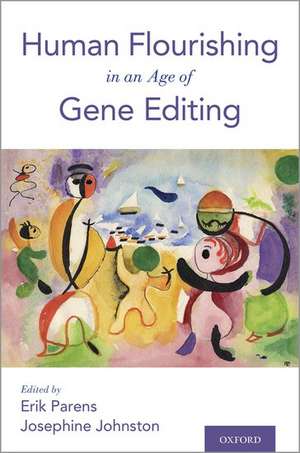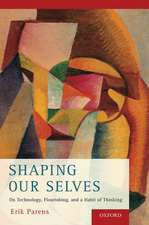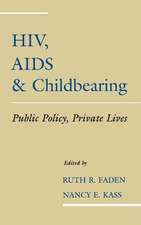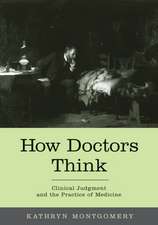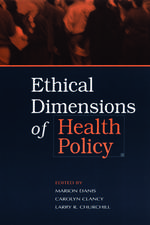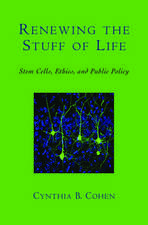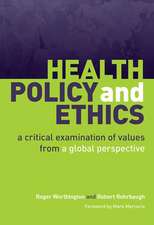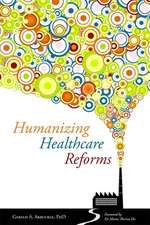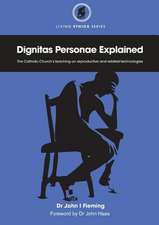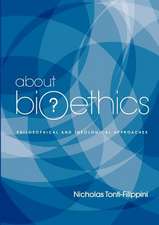Human Flourishing in an Age of Gene Editing
Editat de Erik Parens, Josephine Johnstonen Limba Engleză Paperback – 9 oct 2019
Preț: 258.95 lei
Preț vechi: 276.27 lei
-6% Nou
Puncte Express: 388
Preț estimativ în valută:
49.55€ • 52.99$ • 41.31£
49.55€ • 52.99$ • 41.31£
Carte disponibilă
Livrare economică 17-22 martie
Preluare comenzi: 021 569.72.76
Specificații
ISBN-13: 9780190940362
ISBN-10: 0190940360
Pagini: 288
Dimensiuni: 231 x 155 x 18 mm
Greutate: 0.41 kg
Editura: Oxford University Press
Colecția OUP USA
Locul publicării:New York, United States
ISBN-10: 0190940360
Pagini: 288
Dimensiuni: 231 x 155 x 18 mm
Greutate: 0.41 kg
Editura: Oxford University Press
Colecția OUP USA
Locul publicării:New York, United States
Recenzii
The book starts with a bang, an impassioned and beautifully written essay by Rosemarie Garland-Thompson, the disability studies pioneer, who tells her tale of flourishing despite — indeed in part because of — the genetic condition with which she was born and has lived. It is a compelling firstperson narrative. As a collection, the essays aim to move beyond technical genetic fixes to the human genome, and examine whether interventions at the genetic, individual, or social levels are most appropriate for enabling human flourishing. They address "how should we think about it," rather than prescribe policy solutions.
I should stress [...] that each chapter is self-standing, and may be read independently of the others. But my guess is that you will become rapidly aware of the global coherence of the work, and that you will end up with no part of it left unread ...
I should stress [...] that each chapter is self-standing, and may be read independently of the others. But my guess is that you will become rapidly aware of the global coherence of the work, and that you will end up with no part of it left unread ...
Notă biografică
Erik Parens is Senior Research Scholar at The Hastings Center, where he investigates the ethical implications of using technologies such as psychopharmacology, surgery, and gene editing to shape ourselves and our children. He also investigates how emerging sciences such as genetics and neuroscience shape our understanding of ourselves as persons. He is the author or editor of five books, as well as numerous articles and commentaries for academic journals and general-interest publications. His most recent book is Shaping Our Selves: On Technology, Flourishing and a Habit of Thinking (Oxford University Press, 2014). Josephine Johnston is Director of Research and a Research Scholar at The Hastings Center. She works on the ethics of emerging biotechnologies, particularly in human reproduction, psychiatry, and genetics. Her scholarly work has appeared in medical, scientific, policy, law, and bioethics journals, including New England Journal of Medicine, Science, Nature,Hastings Center Report, and Journal of Law, Medicine and Ethics. She edited, with Thomas H Murray, Trust and Integrity in Biomedical Research: The Case of Financial Conflicts of Interest (Johns Hopkins University Press, 2010). She has also written for Stat News, New Republic, Time, Washington Post, and The Scientist.
